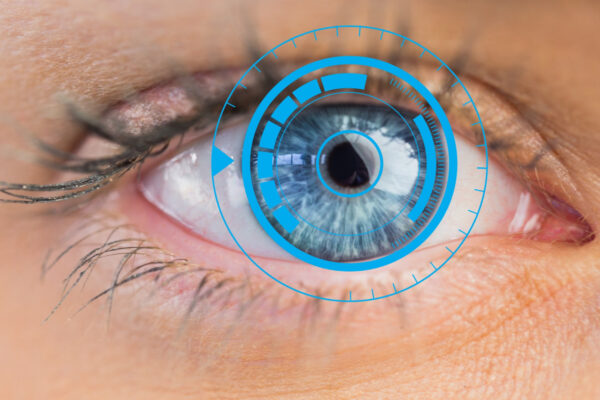Have you ever wondered, “Why is my eye twitching?” If you’ve ever had an uncontrolled eye twitch or eye spasm in your eyelid muscles, you’re not alone. This common condition is known as eye twitching or myokymia and can be quite bothersome. While typically not a cause for concern, eye twitching might signal an underlying medical issue. Learning more about the causes, symptoms, and treatments of a twitching eye can help you manage this condition effectively.
Understanding Eye Twitching
Eye twitching, also called eyelid twitching or blepharospasm, refers to the involuntary muscle spasms around the eyelids. These spasms can vary in intensity and affect one or both eyes. In most cases, eye twitching resolves on its own without any treatment and isn’t considered a severe medical problem.
Types of Eye Twitches
- Minor Eye Twitch: This is the most common form of eye twitching and often resolves without intervention. Stress, lack of sleep, alcohol consumption, and eye strain can trigger this type of twitch.
- Benign Essential Blepharospasm: A more severe type of eye twitching that can result from conditions like dry eyes, Tourette’s syndrome, or other medical issues.
- Hemifacial Spasm: This rare eye twitching type affects one side of the face, potentially impacting activities like talking and eating. It is usually caused by inflamed facial nerves and may require medical treatment.
Common Causes of Eye Twitching
Several factors can lead to eye twitching:
- Allergies: Hay fever or dust allergies can occasionally cause eye twitching.
- Fatigue: Lack of sleep and tiredness can trigger eye twitching.
- Digital Eye Strain: Extended screen time can strain the eyes. Take frequent breaks to relax your eyes if you’re using a computer or smartphone.
- Dry Eyes: Insufficient lubrication on the eye’s surface can irritate the nerves, causing twitching.
- Caffeine: Excessive caffeine consumption can overstimulate the nervous system, exacerbating twitching.
- Nutritional Deficiency: Some studies suggest that a lack of nutrients, like magnesium, may lead to eyelid spasms.
- Dehydration: Dehydration can disrupt electrolyte balance, potentially triggering eye spasms.
- Alcohol Consumption: Excessive alcohol intake can cause eye twitching and worsen dry eye symptoms.
Symptoms of Eye Twitching
The primary symptom of eye twitching is the involuntary twitching of the eyelid, which can vary in severity. Other possible symptoms include sensitivity to light, dry or irritated eyes, and a feeling of fullness in the eyelid.
Diagnosing Eye Twitching
Diagnosing eye twitching involves a comprehensive assessment of your symptoms, medical history, and lifestyle factors. In certain cases, further assessments like blood tests or electromyography (EMG), which measures the electrical activity of the eye muscles, may be recommended.
While it’s essential to note that eye spasms are rarely indicative of a severe issue, they are not entirely impossible. In very rare instances, eyelid spasms may result from more significant brain or nerve disorders.
For individuals experiencing chronic muscle spasms or frequent eye twitching, it may be advisable to explore potential treatment options. If you have concerns about eye twitching or your overall eye health, don’t hesitate to discuss them your eye doctor.
Preventing and Managing Eye Twitching
To prevent or alleviate eye twitching, consider these tips:
- Get sufficient restful sleep.
- Reduce caffeine intake.
- Manage stress levels.
- Take breaks from screens to rest your eyes.
- Adjust screen brightness and contrast.
- Stay hydrated to avoid dehydration-related twitching.
- Maintain clean and moist contact lenses.
- Include magnesium-rich foods in your diet, such as leafy greens, nuts, seeds, and whole grains.
Can LASIK Manage Eye Twitching?
Yes, contacts and glasses can cause dry eyes and eye fatigue which can lead to persistent eye twitching. If you find that your eye twitching continues, we recommend scheduling an appointment with our experienced LASIK team at The LASIK Vision Institute. During your visit, our skilled eye care team will inquire about the onset and frequency of your symptoms. Additionally, a thorough comprehensive eye examination, will be conducted to identify any potential underlying conditions contributing to the twitching.
In conclusion while eye twitching can be bothersome, it’s typically not a serious condition. However, persistent or chronic twitching should be evaluated by an eye doctor to rule out any underlying medical issues. Understanding the causes and symptoms of eye twitching can help you effectively manage the condition. Follow the provided tips to prevent or alleviate eye twitching and promote overall eye health.

Find a LASIK Surgery Location Near You
We’re located nationwide – it’s easy to find a LASIK Vision Center near you.
About The Author
Dr. Bruce January has performed more than 138,000 refractive surgery procedures, and is considered one of the most prolific and experienced refractive surgeons in the world. Dr. January is certified by the American Board of Ophthalmology and a member of the American Society of Cataract and Refractive Surgery. He is also a member of the American Academy of Ophthalmology, which honored him with the Lifelong Education Award.
Categories:



